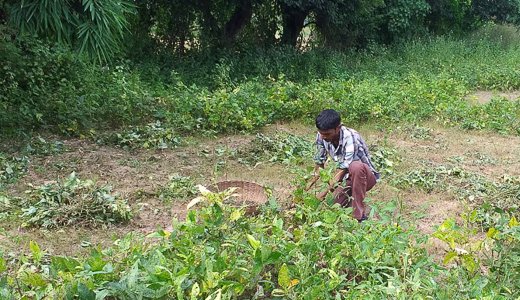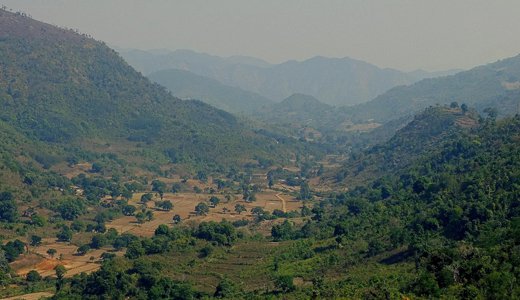Improving Rural Livelihoods through Sustainable Agroforestry in Orissa & Andhra Pradesh, India
Orissa and Andhra Pradesh, India
The project aims to facilitate innovative partnerships among corporates, social enterprises and small farmers. The project mobilizes resource-poor farmers to raise tree plantations on farmlands, and proposes to link them to international carbon markets to enhance their livelihood opportunities. In collaboration with the private industry and small farmers, the project intends to deliver additional revenue to the participating farmers from the sale of carbon credits generated from the plantation activity on degraded lands. The project will be expanded by building on the success of CDM projects through scaling up and replication of activities. 1500 farmers will benefit from this program, both economically as well as socially through additional revenue, income-generating activities and a multitude of co-benefits.
Background of Project
The project aims to use afforestation of degraded land as a solution to control soil erosion and water runoff which will enhance the carbon sequestration potential in degraded lands. It also aims to develop market linkages and capacity building of various stakeholders. The project develops plantation and agroforestry models which can provide multiple co-benefits to farmers, and focuses on the ecological conservation of indigenous biodiversity. Additionally, it provides an extra income source through carbon revenue and ensures empowered livelihoods of rural communities in the area.
Orissa and Andhra Pradesh, India
The Project
The project area is spread over a total of six districts in two Indian states namely Orissa and Andhra Pradesh. The districts include Rayagada, Koraput and Kalahandi in Orissa, and Visakhapatnam, Srikakulam, and Vizianagaram in Andhra Pradesh with predominance of indigenous population, mainly small landholders. The project boundary includes all discrete parcels of lands owned by different farmers in the blocks of the six districts Current land use is minimal or intermittently used for rain-fed agriculture, and holds potential for expansion of cultivation of millets, cereals, pulses and various other crops have given adequate technological and financial support. Farmer Producer Organizations (FPOs) will be established for management and monitoring.
The Benefits
The project provides livelihood upliftment for marginalised farmers through the generation of additional income from carbon credits. It also builds partnerships with national and international research organisations to enhance applicable knowledge of agriculture. The project supports the promotion of local financing arrangements for the restoration of degraded lands for resource-poor farmers. It promotes gender-sensitive strategies and improved regulations on cultural reservations. Additionally, it leads to improved air quality, soil quality, and biodiversity from the afforestation of degraded lands.







